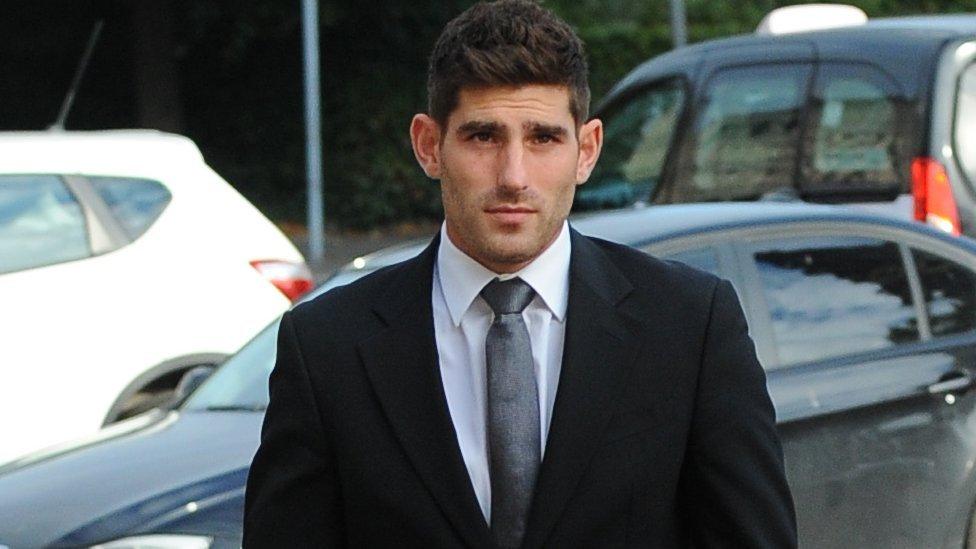Ched Evans 'disassociates' himself from abuse of complainant
- Published

Ched Evans has said he "disassociates" himself from anyone who names or abuses the woman at the centre of his rape case.
The 27-year-old footballer was cleared on Friday of raping the 19-year-old woman in a hotel room.
Writing on Chedevans.com, external, he said: "I absolutely disassociate myself from anyone who names on any forum the woman in this case."
Mr Evans was convicted of rape in 2012, but that was quashed in April.
The complainant, who cannot be named for legal reasons, had to change her name and move house after being identified on social media following the first trial.
She was named and abused again on social media soon after Mr Evans was cleared.
A statement which appeared today on Mr Evans's website said: "Following yesterday's decision at Cardiff Crown Court I want to stress that I absolutely disassociate myself from anyone who names on any forum the woman in this case. Or makes any offensive comments about her.
"Everyone associated with the past five years now has the right to move on with their lives and I wish no ill will to anybody."
Supt Jo Williams of North Wales police said: "We are aware that once again the victim has been named on social media.
"We would remind people that it is a criminal offence under Section 5 of the Sexual Offences Amendments Act to do so, and that the victim has the right to life long anonymity.
"An investigation is ongoing into the naming."
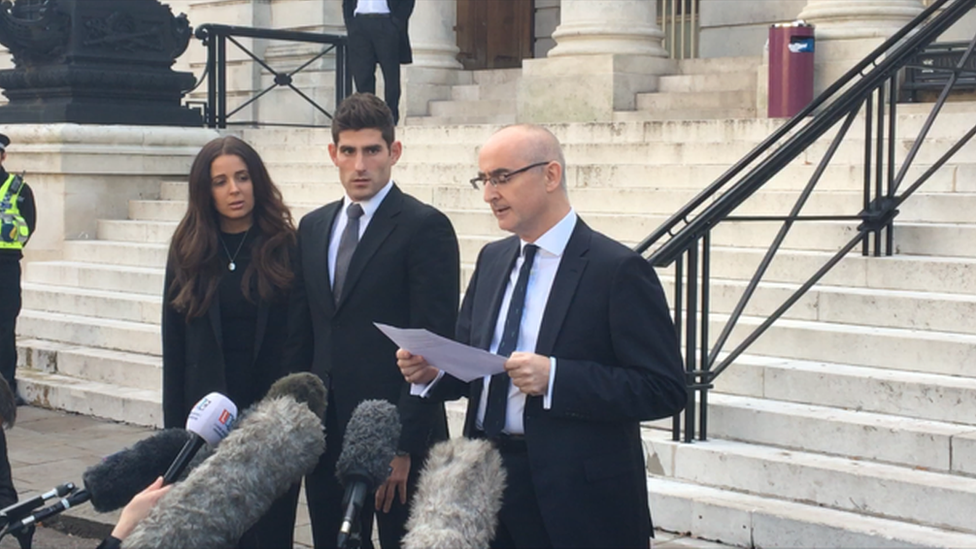
After his aqcuittal Mr Evans issued an apology "to anyone who might have been affected by the events of the night in question"
The Chesterfield striker was accused of attacking the woman at a Premier Inn in Rhuddlan, Denbighshire, on 30 May 2011.
The original conviction was referred to the Court of Appeal following a 10-month investigation by the Criminal Cases Review Commission, which found new information not raised at the original trial.
The evidence concerned two other men who claimed they had sex with the woman around the same time of the alleged offence and who described their encounters with her in highly specific terms that were similar to Mr Evans's own account of what had happened.
Former solicitor general Vera Baird QC said the details of the woman's past should not have been heard in court.
She told the BBC's Today programme: "How, in this case, it was ever allowed for evidence that this woman had allegedly had sex with other men, when the questions in the trial were was she so drunk that she lost the capacity to consent and did he reasonably believe that she was not that drunk and in fact she was consenting?"

Ched Evans was playing for Sheffield United at the time of the alleged rape
Since 1999, defence lawyers have been banned from cross-examining alleged rape victims in court about their sexual behaviour or history but the Court of Appeal said Mr Evans' case was exceptional.
Lady Justice Hallett ruled that the events were so similar to what Mr Evans had described that a jury had to hear about them before deciding whether the woman had been incapable of giving her consent.
Northumbria police and crime commissioner Ms Baird, who was instrumental in bringing about the change in law, added: "The only difference between a clear conviction of Mr Evans in 2012 and the absolute refusal of him having any leave to appeal at that time, and his acquittal now, is that he has called some men to throw discredit on [the woman's] sexual reputation.
"We've gone back, I'm afraid, probably about 30 years."
Criminal barrister John Cooper QC insisted the new information allowed by the Court of Appeal had been relevant to the case.
'Inconsistencies and anomalies'
Ms Baird's comments did the jury a disservice, he added.
"We are dealing with juries in the 21st Century, men and women who understand ways of life and understand that allegations of rape like this need to be properly tested.
"We don't have and shouldn't have attitudes going back 30 or 40 years. These are modern juries, applying modern, proper standards we all uphold."
Don Hale, an investigative journalist whose work led to Mr Evans's retrial, said he hoped the case did not deter women coming forward to report sexual offences.
"That obviously wasn't the intention from anybody. This case was quite unusual. There was no crime scene, no DNA, no forensic [evidence].
"There was a whole list of inconsistencies and anomalies in this case that just weren't followed up.
"It was obvious to me that Ched was the subject of a miscarriage [of justice]."
- Published14 October 2016
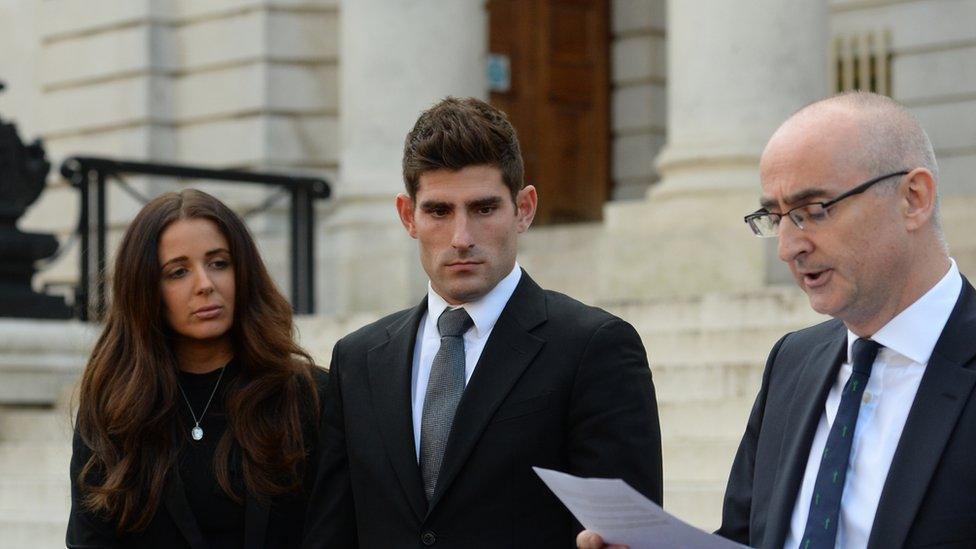
- Published14 October 2016
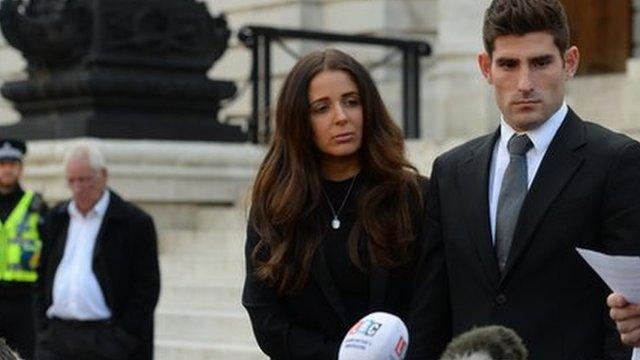
- Published14 October 2016
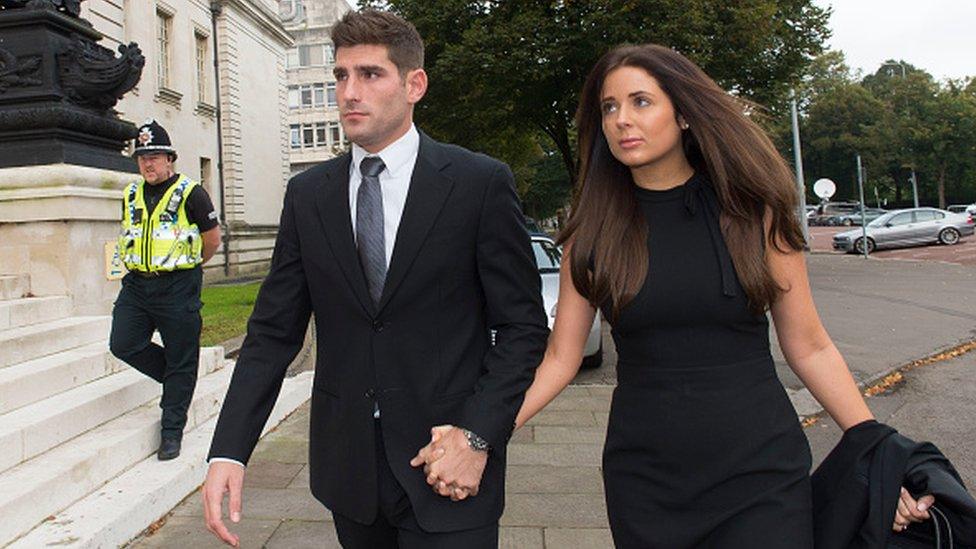
- Published11 October 2016
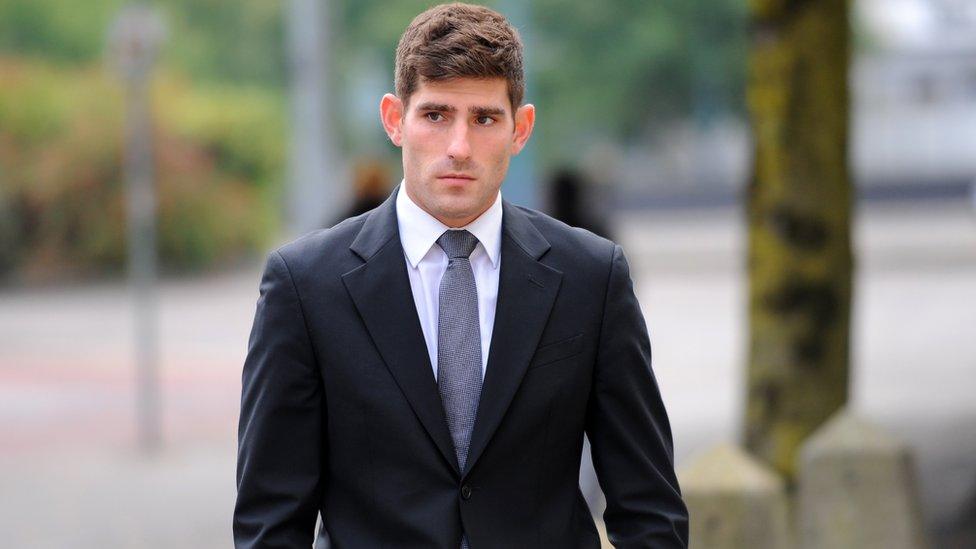
- Published10 October 2016

- Published6 October 2016
